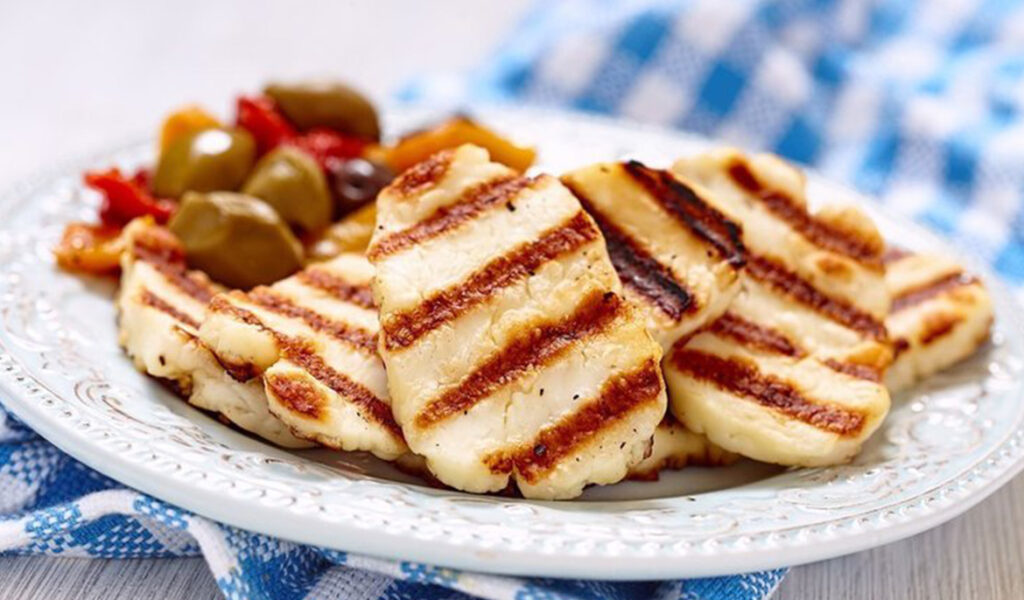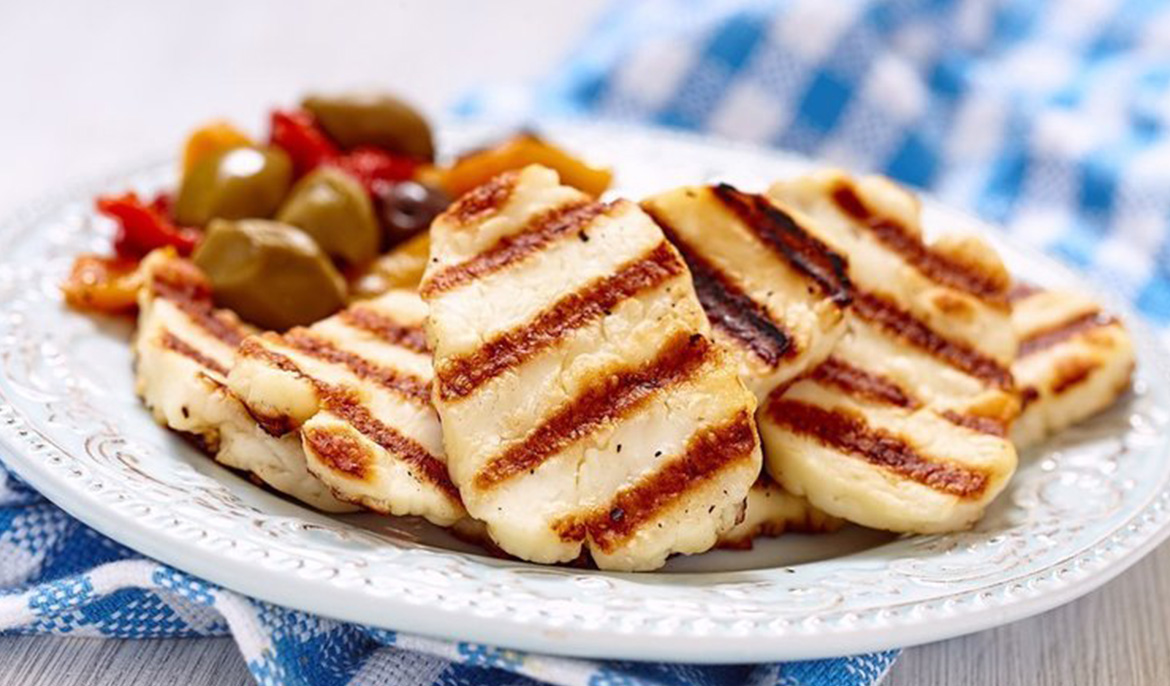Agriculture Minister Maria Panayiotou has announced a new decree concerning the milk quota for the production of Halloumi with Protected Designation of Origin (PDO) status. The Minister also announced financial measures and tools to support the sector.
Additionally, Panayiotou announced the implementation of a new software for goat and sheep milk tracking, set to be launch in October 2024. The data collected will be used for future quota decisions.
Pending the availability of this data, the decree specifies that from February 1, 2025, to August 31, 2025, the quota for goat and sheep milk in the Halloumi mixture will increase to 30% from the current 25%.
During the interim seven-month period, quotas as provided by the 2023-2024 decrees will remain in effect. Thus, until August 31, 2024, the quota will remain at 25%.
For the dry period, previous decrees set quotas at 10% and 19%. The new decree averages these to a 15% quota.
The new annual decree establishes an average quota of 23%, up from 18% in the 2023-2024 decrees. This increase includes a 5% rise and a reduction in seasonality from six months to five.
The Minister pointed out that these decrees benefit all livestock farmers. They enable both seasonal and year-round goat and sheep farmers to increase production and transition away from seasonal limitations. Additionally, cattle farmers will adapt to the new standards, limiting cow milk production for Halloumi and reducing environmental impact in line with European commitments.
Financial measures and tools
The Minister also introduced “generous financial measures and tools” developed in collaboration with all stakeholders in the Halloumi production process. These include targeted incentives to boost goat and sheep milk production and phase out seasonality. The focus will be on modern infrastructure, genetic improvement, and expanding production units.
“Halloumi is our shared heritage. The state actively uses the transition period to support all those involved in its production, ensuring it remains our primary export product and retains its PDO status, which enhances its market strength,” Panayiotou said.
She highlighted the state’s commitment to achieving these goals through cooperation and finding compromise solutions among all parties involved. The state is utilizing the five-year transitional period before the full implementation of EU Regulation 2021/591, which designated Halloumi/Hellim as a PDO product, to ensure the sustainability and primary export status of PDO Halloumi.
EU Regulation 2021/591, requires a specific proportion of goat and sheep milk in the mixture used for Halloumi production. It must contain at least 51% goat and sheep milk and the remaining portion can be cow milk.
The European Commission has granted Cyprus a five-year transition period to comply with the requirements for the production of Halloumi after the initial 10-year transition period requested by the Republic of Cyprus expires next Tuesday. During this period, producers can use a higher proportion of cow milk, gradually increasing the goat and sheep milk content to meet the 51% requirement by the end of the transitional period.
(Source: CNA)



